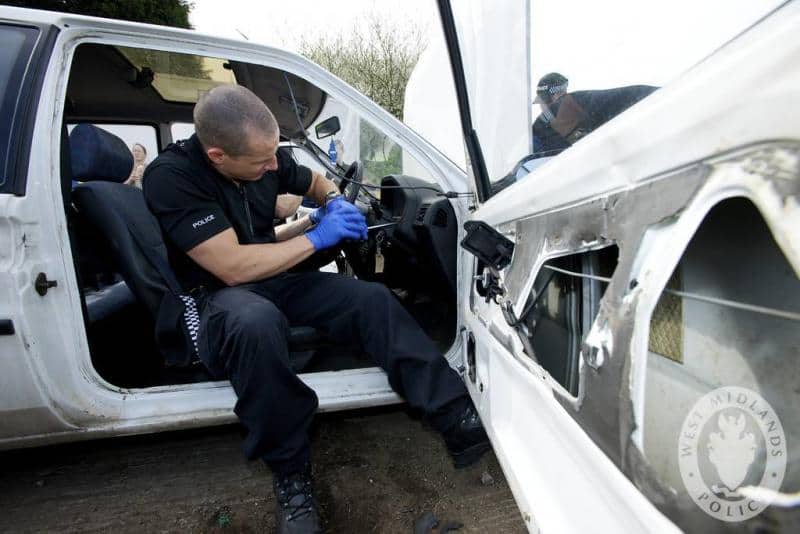Unreasonable Search and Seizure – Vehicle Passenger Rights and Tire Chalking in Michigan

The Fourth Amendment of the U.S. Constitution protects an individual from unreasonable search and seizure of their person, home, papers, and effects. However, a few recent cases have brought vehicle searches into the spotlight. In essence, both state and federal courts have struggled time and again when dealing with searches of motor vehicles. A person’s car can become caught in a gray area – halfway between being home and in private and out in the public. In general, law enforcement can search a vehicle without a warrant as long as they have probable cause or consent. However, passenger rights and, notably, a recent case involving tire chalking further complicate legal vehicle searches.
A few of our Michigan car accident attorneys recently discussed some of these issues regarding the search and seizure of automobiles.
Passenger Rights & Unreasonable Search and Seizure
Thanks to the Fourth Amendment, law enforcement officers cannot search you or your property without a warrant, probable cause, or consent. However, when the driver of a motor vehicle consents to a search of their car or there is probable cause for the search, what happens to the rights of the passenger of that vehicle? Do they or their property become subject to a search? In the case of People v. Mead, Michigan courts ruled that the passenger had a reasonable expectation of privacy regarding the backpack. The Supreme Court of Michigan agreed that, while the driver consented to search, that did not automatically mean the backpack belonging to the passenger could be included in that search.
Bottom line: Regardless of driver consent, if a vehicle passenger has an expectation of privacy in their backpack, it is not subject to search unless there is probable cause.
Grand Rapids car accident attorney, Tom Sinas, appeared on Fox 17 Know the Law to discuss the rights of passengers during vehicle searches.
Fox 17 Know the Law – Passenger Rights
Tire Chalking in Michigan Ruled Unconstitutional
As a means to enforce Michigan parking laws, law enforcement oftentimes deploys the use of tire chalking. Police officers draw a line on the tire where the sun casts its shadow. This helps to determine how long a vehicle has been parked in a particular spot. Parking enforcement is then able to write tickets for vehicles that have violated parking regulations.
However, Michigan Courts held in a recent case involving a Saginaw woman that, due to the lack of a warrant, tire chalking is considered a form of unreasonable search and seizure. The city of Saginaw argued that tire chalking fell under what is known as the “community caretaker exception.” Essentially, the city’s argument was that tire chalking was protecting the community from harm. In the end, Michigan Courts ruled that this was simply a method for generating revenue for the city. Further, tire chalking is a violation of the Fourth Amendment of the Constitution.
Lansing personal injury attorney, Bryan Waldman recently appeared on the WLNS 6 “Legal Edge” segment to explain more.
WLNS Legal Edge – Tire Chalk Ruling in Michigan
Warrantless Searches of Cars
Some people believe you have to have a search warrant for any search, but this is essentially untrue. In the case of vehicle searches, law enforcement does not need a search warrant. As mentioned before, however, they do need probable cause or consent. In Collins v. Virginia, the defendant’s vehicle was searched while parked in the driveway of his home. The defendant argued that the driveway was part of his private property, therefore protected under the Fourth Amendment. The government, however, claimed that, since it was a vehicle, a search warrant wasn’t required. Ultimately the Supreme Court sided with the defendant, therefore, it was an unreasonable search and seizure of the vehicle.
Fox 17 Know the Law – Warrantless Searches
While constitutional rights violations are very complex cases, you may have a claim if your right to privacy has been violated. Contact our team of attorneys online here. Or call us at 517-394-7500 for more information.

